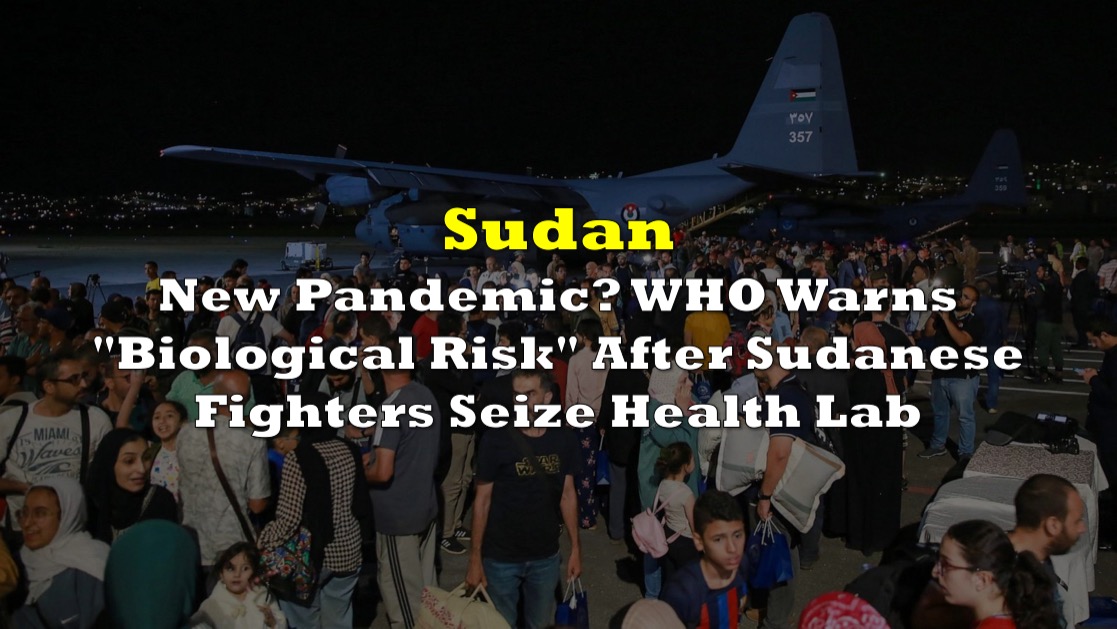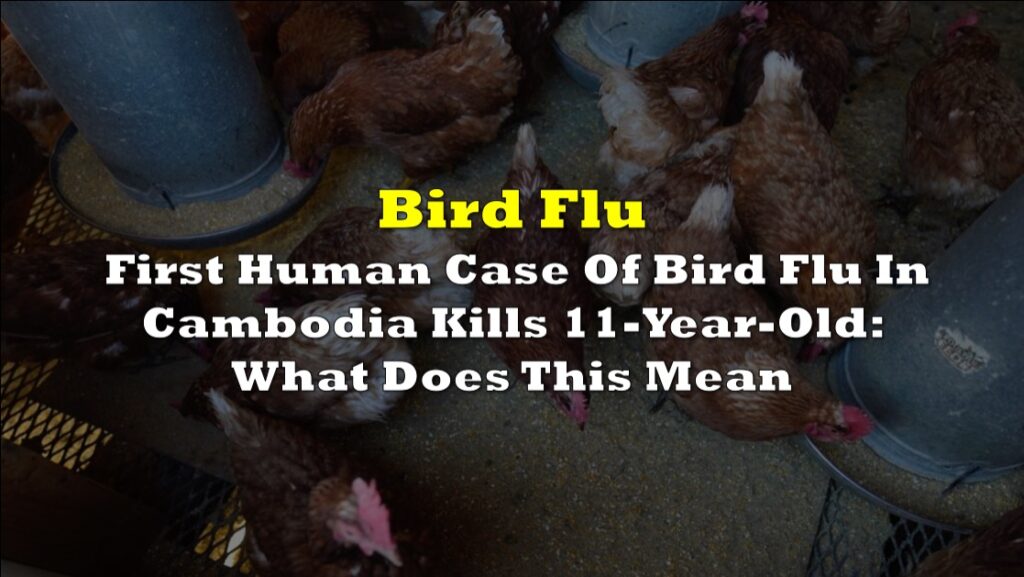The World Health Organization issued a “huge biological risk” warning on Tuesday after Sudanese fighters seized the National Public Health Laboratory in Khartoum, as foreign nations raced to mount quick evacuation efforts from the country and violence shattered a fragile US-brokered ceasefire.
A high-ranking medical source informed CNN that Rapid Support Forces (RSF)–a Sudanese paramilitary group–had taken over the lab, which included illness samples and other biological material. The WHO did not assign blame for the lab seizure, but stated that medical technicians could no longer enter the facility.
Nima Saeed Abid, the WHO representative in Sudan, described the development as “extremely dangerous because we have polio isolates in the lab, we have measles isolates in the lab, we have cholera isolates in the lab.”
“There is a huge biological risk associated with the occupation of the central public health lab in Khartoum by one of the fighting parties,” he added.
In a statement to CNN, the WHO stated that “trained laboratory technicians no longer have access to the laboratory” and that the facility had suffered power outages, implying that “it is not possible to properly manage the biological materials that are stored in the laboratory for medical purposes.”
“The danger lies in the outbreak of any armed confrontation in the laboratory because that will turn the laboratory into a germ bomb,” the source added. “An urgent and rapid international intervention is required to restore electricity and secure the laboratory from any armed confrontation because we are facing a real biological danger.”
🚨 REPORT: The World Health Organization says there is an “extremely serious” situation and a “huge biological risk” as Sudan Rebels take control of a lab containing virus samples
— Nick Sortor (@nicksortor) April 25, 2023
Sudan is a strange place to have a biolab. pic.twitter.com/IRSl9Xkdcz
— WOLSNED 🇬🇧 (@wolsned) April 25, 2023
Sudan doesn't have biolabs. The United States has biolabs in Sudan.
— Mr. ✘ (@GlomarResponder) April 25, 2023
They keep getting found in places where children can easily go missing. I'm not making accusations, but it does start to look weird. https://t.co/C1HTtJjHHZ
On Tuesday, gunfire and the roar of fighter jets could be heard in Khartoum, half a day after the announcement of a 72-hour truce boosted hopes of opening up escape routes for civilians fleeing the conflict. Heavy fighting erupted in the northern section of Khartoum state between the Sudanese military and the Rapid Support Forces, the paramilitary group opposing the army for control of the country.
The disputing parties accused each other of breaking the agreement.
The number of persons killed in Sudan since violence erupted eleven days ago has risen to at least 459, according to the World Health Organization, with at least 4,072 injured.
Medical crisis
Earlier, Dr. Ahmed Al Mandhari, WHO Regional Director for the Eastern Mediterranean, said that “movement in Khartoum is restricted due to the insecurity, creating challenges for doctors, nurses, patients, and ambulances to reach health facilities, and putting the lives of those who need urgent medical care at risk.”
“As of today [April 20], according to the Ministry of Health, 20 hospitals have been forced to close due to attacks or lack of resources, and an additional eight health facilities are at risk of closing due to staff fatigue or lack of medical doctors and supplies,” the regional director said in remarks given at a press briefing.
The Federal Ministry of Health also reported 20 hospitals as no longer functional and 12 others at risk due to lack of medical supplies and health care workers.
Sudan is one of seven nations in the greater Horn of Africa that are already suffering from food insecurity, with more than a quarter of the population fearing famine. Multiple disease outbreaks are now spreading throughout the country, including measles, poliovirus, Khartoum’s first-ever Dengue outbreak, and rising malaria cases throughout the country.
“As more hospitals become nonfunctional due to lack of health supplies, a dedicated group (including WHO, MOH, and mass casualty management teams) are coordinating with pharmacies and drug stores on the availability of supplies and ensuring that medicines and supplies are directed to where they are needed most,” Mandhari said.
While there were efforts and presence by the global health organization in Sudan, WHO said that training in mass casualty management could have saved a fifth of the lives lost in the country to date if health care workers had access to injured civilians.
Over 30 frontline doctors were trained in mass casualty principles and prepared to become national teachers; the training was then cascaded to over 150 frontline health workers in 2022 and 60 more in 2023, with mentorship and ongoing assistance from the Regional Trauma Initiative.
However, the WHO is now unable to send more trauma and critical surgical supplies to Sudan because the airports are still closed and the roads are dangerous.
“There is an immediate need to upscale the trauma care pathway in Sudan… The hospitals also require basic operational supplies, such as fuel, water and electricity,” the WHO said. “However, none of the above can take place without the sanctity of respected health care and safe access for health care workers.”

Refugee race
The United Kingdom, France, South Korea, and a number of other countries declared on Tuesday that they were withdrawing their citizens after US Secretary of State Antony Blinken proposed a three-day ceasefire.
Meanwhile, the White House is considering sending US soldiers to Port-Sudan to assist with the evacuation of American citizens, a US official familiar with the operations told CNN on Monday.
Three US warships are also stationed off the Sudanese coast. The USNS Brunswick is being sent to Sudan, according to a Navy official, just one day after the Pentagon said that the USS Truxton is already off the coast of the country and the USS Lewis B. Puller is on its way.
A spokesman for the French Chief of Defense Staff informed CNN that up to 500 persons escaping the conflict had began boarding the French frigate “Lorraine” near Port-Sudan on Tuesday afternoon.
Nigerian students at El-Razi University in Sudan waiting for evacuation. Two buses are on the ground at this pickup spot. pic.twitter.com/uuQdADIYVC
— Channels Television (@channelstv) April 26, 2023
As the conflict enters its second week, water supplies are running low and food is “running out” in Khartoum state.
Shops are completely out of food and numerous food plants in the state had been robbed, a witness told CNN.
“As for the water supplies, we don’t have water for the eleventh day continuously. We only get water from a well nearby. So you have to go all the way to the well with barrels or stuff if you have a car or stuff. If not you have to take something small to get enough water for you,” the witness added.
Residents are also in financial difficulty because state employees have not been paid since before the Eid al-Fitr holiday at the end of last week, and the bank’s ATMs have stopped working.
Sudan has been ravaged by violence since a brutal power struggle between two competing generals spilled into the streets, with forces loyal to each man fighting on Khartoum’s streets and in communities surrounding the capital.
Throughout the conflict, the RSF and Sudanese military have released statements disparaging one another, with unverified claims of control over critical capital posts and charges that each side is targeting civilians.
Information for this briefing was found via CNN and the sources mentioned. The author has no securities or affiliations related to the organizations discussed. Not a recommendation to buy or sell. Always do additional research and consult a professional before purchasing a security. The author holds no licenses.









